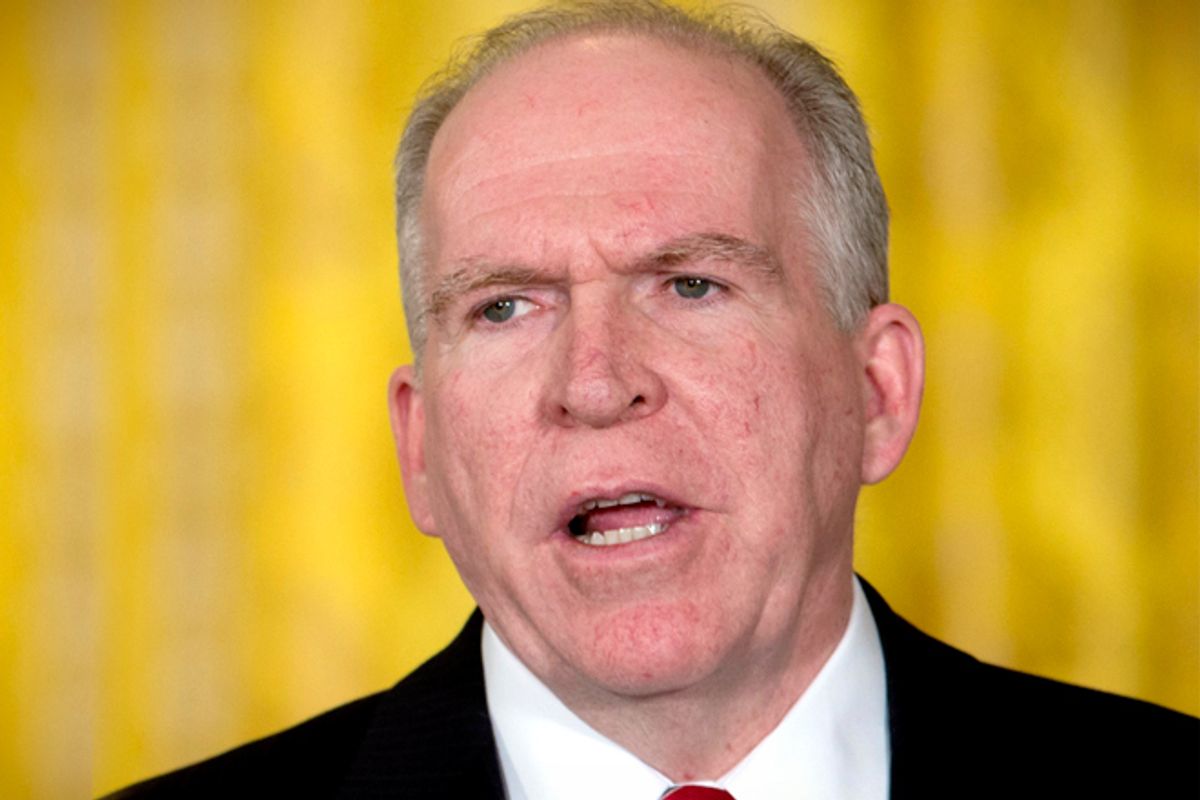Although John Brennan's confirmation as CIA Director is nigh on assured, his nomination procedure has been anything but routine. Leading up to his Senate confirmation hearing Thursday, a demand for answers about the darkest aspects of the U.S. counterterror program -- of which Brennan is a major architect -- has swelled in the media, among activists and in Congress.
On the eve of the hearing, President Obama fulfilled Congressional demands to have the Justice Department release the classified legal reasoning for the killing of US citizens by drones to the Senate Intelligence Committee. The decision follows the leak of a white paper, believed to summarize the full 50-page document senators have now received, which this week drew sharp criticism from legal experts. A group of 11 senators led by Sen. Ron Wyden (D-Ore.) wrote to the White House demanding to see the legal opinion and threatening to hold off on Brennan's appointment were it not released. According to the AP, Wyden "left open the possibility he might still try to block Brennan's nomination":
He said turning over the opinion was a good first step. "I'm committed to making sure that we get all the facts," Wyden said on NBC's "Today" show. "Early this morning, I'm going to be going in to read the opinion. We'll go from there."
Wyden said "there are still substantial questions" about how the administration justifies and plans drone strikes. "The Founding Fathers thought the president should have significant power in the national security arena. But there have to be checks and balances," Wyden said. "You can't just skirt those checks and balances if you think it's inconvenient."
Brennan, who has been dubbed "drone czar" for his central role Obama's controversial drone program, will face questioning on issues beyond kill lists and disposition matrices. Congressional aides said much of the questioning is expected to focus on what Brennan knew about the Bush administration's use of torture and extraordinary rendition. It is understood that Brennan had detailed information about the use of waterboarding on detainees -- a technique he later publicly condemned. As Reuters noted:
Brennan first surfaced as an Obama CIA nominee in 2008 but he withdrew after human rights activists protested his equivocal public statements regarding the agency's use of so-called enhanced interrogation techniques, including waterboarding.
This time human rights groups have raised questions about Brennan, but opposition has come nowhere close to the level mounted by conservative and pro-Israel groups against Chuck Hagel, Obama's nominee to replace Leon Panetta at the Pentagon.
Although Brennan is likely to face reasonably tough questioning, especially with regards to the CIA's drone program and the secrecy shrouding it, commentators note that the nominee is unlikely to give any expansive answers. As such, the hearing is no less a dog and pony show than most confirmation sessions. As Amy Zegart, a former national security council staffer and a senior fellow at Stanford University’s Hoover Institution, told TIME, "Senators may get political points for asking about the CIA’s drone program, but they sure aren’t going to get answers... If I were a gambling woman, I’d bet big money on the number of times Brennan says, ‘I’m happy to discuss this in closed session.’”



Shares